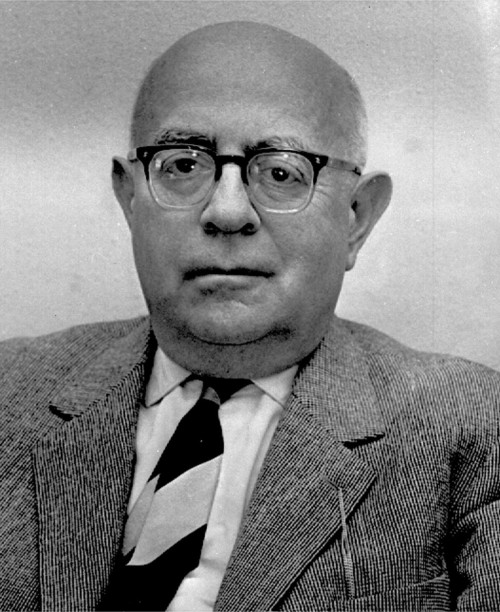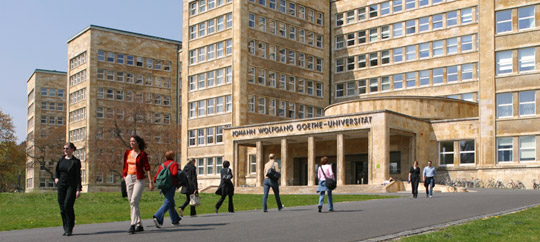In a long overdue development that speaks to Germany’s ongoing efforts to acknowledge its Nazi past and achieve a historic reconciliation with Jews, a major university in Germany plans to establish a permanent academic chair in Holocaust studies in 2017.
The scholar who’ll fill the position will also be in charge of Frankfurt’s Fritz Bauer Institute, whose mandate is to document the Holocaust.
Thanks to a grant from the Ministry of Science and Arts in the state of Hesse, Johann Wolfgang Goethe University — a distinguished institution in Frankfurt whose faculty members have included luminaries like Theodor Adorno and Max Born — will become the first German university to host a tenured professorship on the Holocaust.

“This is a milestone in German Holocaust research,” said a university spokesman in describing this important moment in German academia.
The university’s vice-president, Manfred Schubert-Zsilavecz, believes the chair will facilitate greater understanding of the dynamics of discrimination, oppression and genocide under the Nazi regime.
It’s historically fitting that this university should be the first in Germany to create such a chair. During the Nazi era, one-third of its professors and students were dismissed and expelled on the basis of race and politics. And one of its most prominent buildings, which once belonged to the I.G. Farben conglomerate, was a facility where Zyklon B — a pesticide used to murder Jews in the Auschwitz gas chambers — was manufactured.
Considering that the Holocaust was conceived and planned by Germans and implemented by German perpetrators in conjunction with a wide variety of European collaborators, it is indeed odd that not a single university in Germany has had an endowed chair on the Shoah until now.
Regardless of the reasons, this omission was surely a glaring anomaly. German universities, after all, are among the finest in the world, as they have been for centuries.

No one, however, should jump to the conclusion that the Holocaust has been academically marginalized in Germany. German scholars have made stellar contributions to the discipline, while German institutions, ranging from the Munich Institute for Contemporary History to the Center for Research on Antisemitism at the Free University of Berlin, have been leaders in the field.
Apart from all that, Germany has made financial amends for Nazi crimes against humanity and German schools have incorporated the Holocaust into their history curriculum.
In other words, Germany has unflinchingly faced up to its Nazi interregnum, while demonstrating consistent support for Israel.
It would not be far-fetched to suggest that the average German probably knows more about the Holocaust than most Europeans. But there is still a lot of work to be done in spreading the knowledge.
Now that Johann Wolfgang Goethe University intends to inaugurate the first German chair on the Holocaust, perhaps it’s time for more universities in Germany to emulate its example.
It would certainly be an appropriate way of acknowledging the darkest period in German history and deepening understanding and friendship between Germans and Jews.
